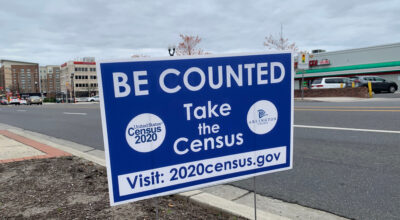
Primer: The Reconciliation Ruse to Radically Transform America
*This primer is based on committee reports, updates may come based on bill text.
Overview
The Democrat-controlled Senate and House of Representatives passed a colossal $3.5 trillion FY2022 budget resolution last month, along partisan lines, that would radically transform the United States. Budget reconciliation instructions were then provided to congressional committees so they could begin crafting these radical big-government policies.
The budget reconciliation process, first created following passage of the Congressional Budget Act of 1974, allows the Senate to bypass the legislative filibuster when it comes to spending, tax, and debt-limit bills. In short, reconciliation allows the Senate to pass these fiscal bills with a simple majority of 51 votes instead of the usual 60-vote threshold. The original purpose of reconciliation was to make it easier for both the House and the Senate to alter current law to better align with revenue and spending baselines specified in the annual budget.
To prevent lawmakers—particularly in the Senate—from abusing the reconciliation process, the so-called “Byrd Rule‘” was instituted in 1985 as part of the Consolidated Omnibus Budget Reconciliation Act (COBRA) to protect the integrity of the budget process and preserve the deliberative nature of the Senate.
Simply put, the Byrd Rule prohibits senators from attaching extraneous provisions to a reconciliation bill’s budgetary changes. If a policy is unrelated to deficit reduction goals or fiscal nature of the reconciliation process, it cannot be included. This is to prevent sweeping proposals, unrelated to the budget, from being rammed through both houses of Congress.
Despite the Byrd Rule’s well-known parameters for what is considered to be extraneous—as well as a recent ruling from the Senate parliamentarian declaring amnesty cannot be passed via reconciliation—lawmakers appear intent on pushing the limits of their power.
For example, socialist Reps. Ilhan Omar (D-MN) and Rashida Tlaib (D-MI) are calling for Democrats to simply “ignore” Senate rules and impose their agenda on the American people through force.
Below, you will find the top ten radical policies being proposed through the reconciliation ruse.
Top Ten Radical Policies Proposed in Budget Reconciliation
1. Elevating Dependency over Opportunity
Among the myriad provisions in the reconciliation package are instructions to make Obamacare subsidies permanent and to boost its failed Medicaid expansion by eliminating the so-called “Medicaid coverage gap.” The expansion of Medicaid is responsible for bankrupting state budgets and worsening health outcomes for those enrolled in the program.
Proponents of closing the “Medicaid coverage gap” dishonestly blame fiscally responsible lawmakers in non-expansion states for the estimated two million Americans below the poverty line who do not have Medicaid coverage. But this “gap” is largely a myth as nearly 80 percent are adults without dependents who are capable of finding employment and health insurance coverage.
The reality is that Medicaid is not a health care program. It is a taxpayer-funded welfare program.
According to the Bureau of Labor Statistics (BLS), there were nearly 11 million available jobs in the United States at the end of July, with roughly 8.4 million currently unemployed Americans. In other words, there are more available jobs than unemployed Americans.
Instead of using the budget to force individuals into dependency by throwing them onto a failed and fraudulent welfare program masked as health care, policymakers should be focused on ways to get people back to work.
2. Replacing Parents with Government Ideologues
The reconciliation instructions include an eye-popping $450 billion in spending for universal day care and Pre-K. In Title II, Subtitle D of the House Education and Workforce Committee’s reconciliation bill, the legislation outright creates a new entitlement program specifically titled “Birth Through Five Child Care and Early Learning Entitlement.”
Far-left ideologues are not even hiding their desire to usurp the authority and role of parents in the lives of their children from birth.
Furthermore, multiple studies over the years have shown that programs like Head Start and other subsidized Pre-K programs either have no statistical benefit for the development of children or, by some metrics, actually cause harm.
With a record 11.1 percent of families homeschooling their children in the midst of failing public schools and radical ideologues in the classroom pushing destructive ideas like Critical Race Theory, the push for universal Pre-K is little more than an attempt to exercise more control over children promoted by ideological lawmakers.
3. Disintegrating American Communities
The flagrant attempt to incorporate policies that encourage mass migration, amnesty, and a continued invasion at the U.S. southern border may have been derailed by the Senate parliamentarian, but progressive lawmakers have pledged to implement pathways to citizenship and legal status through the reconciliation process.
The budget instructions to the Senate Judiciary Committee call for $107 billion in spending to grant lawful permanent status to “qualified immigrants.”
The crisis at the U.S. southern border is only accelerating, filling American communities with increasing crime, drugs, and social discord. For two straight months, Customs and Border Protection (CBP) has apprehended over 200,000 illegal immigrants. At the time of publication, over 12,000 illegal aliens are clustered in Del Rio, Texas—many of them Haitians and Africans.
The world knows America has a porous, vulnerable, and undefended southern border with dangerous drug cartels maintaining operational control over large swaths. Using the budget process, specifically the American taxpayer’s money, to encourage such self-destructive chaos to continue goes far beyond dereliction of duty. It is a full betrayal of the American people.
4. Empowering Communist China
The reconciliation package includes instructions to the Senate Energy and Natural Resources Committee to procure “energy efficient materials” as part of an effort to advance the renewable energy agenda (including subsidizing the development of the electric vehicle fleet and associated infrastructure) as well as to maintain the national security apparatus reliant on rare earth minerals (REMs).
The problem is that around 80 percent of the processing and manufacturing of REMs occurs in China, our foremost global adversary. With the catastrophic manner in which the Biden administration retreated in Afghanistan, a nation estimated to hold some $1 trillion in REMs, lawmakers are now using the budgetary process to procure vital materials along supply lines that largely come from communist China.
Reports have long assessed that Alaska is rich in these vital rare earth minerals. If the United States is to counter China effectively, efforts must be made to explore, mine, and refine whatever natural resources exist in the United States. Doing so would reduce American dependence on China for materials critical to national security.
5. Increasing Energy Poverty
As Americans struggle with rising prices due to excessive federal spending driving inflation, the reconciliation package seeks to inflict greater pain on Americans when it comes to energy usage, reliance, and costs.
The budget instructions direct the House Energy and Commerce Committee to spend $150 billion to implement the “Clean Electricity Performance Program,” (CEPP) which would require electric utility providers to increase the amount of “clean energy” they use by four percent each year.
Providers who meet this goal would then be eligible for Department of Energy grants, funded by taxpayers, to offset the increased costs of using less reliable, more expensive energy. Providers who failed to meet this goal would be fined and have to pay the Department of Energy based on a formula taking into account the energy usage they should have devoted to solar, wind, and other renewables.
So-called “clean energy” was largely responsible for the near-failure of the Texas energy grid during the February 2021 arctic storm. This occurred in large part because the Texas legislature expanded the grid’s reliance on wind and solar energy, both of which are notoriously unreliable and lack the storage capacity of more reliable sources of energy, like coal and natural gas.
Furthermore, studies have shown that embracing more expensive “clean” energy could raise household energy costs by as much as 30 percent, stripping middle-class Americans of thousands of dollars in income every year because of unnecessarily high utility prices.
This backdoor effort to enact the Green New Deal would be a massive tax hike on middle-class and low-income Americans and has already alarmed thousands of municipal-owned utility companies, who are concerned that the CEPP will prevent them from maintaining electricity that is “affordable and reliable.”
6. Closing Off Life-Saving Drugs and Therapeutics
As Americans fight the COVID-19 pandemic and the power-hungry bureaucrats seeking to take advantage of it, the reconciliation package includes provisions that would slow down the development of life-saving drugs and therapeutics.
Specifically, the reconciliation instructions to the Senate Finance Committee to lower the prices of prescription drugs borrows heavily from H.R. 3, a bill that would impose significant price controls on the domestic pharmaceutical industry. The impact of these price controls would cripple innovation, threaten one million jobs, and result in fewer new medications and therapeutics.
The Congressional Budget Office (CBO) estimated that H.R. 3 would result in roughly 30 fewer new drugs in the next decade, any and all of which could be life-saving. Analysis from those engaged in the biologics industry suggests that the impact would be far larger and that if such legislation had been in place over the last decade some 68 life-saving drugs (including a disproportionate number of drugs and therapies used in oncology and neurology) would never have come to market.
America is a global leader in medicine. The budget process threatens that reality and puts the health of millions of present and future Americans at risk in the name of costly and misguided price controls.
7. Creating Citizen Climate Monitors
The reconciliation package includes a provision, taken from the president’s American Jobs Plan, instructing the Senate Agriculture Committee to spend at least $10 billion to establish the Civilian Climate Corps (CCC). This new radical program aimed at America’s youth would create thousands of new government workers to promote what the administration deems “environmental justice.”
Among the tasks of this new pseudo-New Deal effort would be installing solar panels, engaging and promoting activities that reduce carbon emissions, and monitoring activities and development on public lands. In other words, the CCC would be designed to monitor and mobilize against anything that threatens the “green agenda,” and do so courtesy of the American taxpayer.
These government jobs would be unionized, further entrenching the status-quo dynamic in which Democrat politicians use tax dollars to bankroll the very entities who fund their political campaigns.
The White House’s deputy climate advisor has called for Congress to “seize this opportunity” to “take on this existential crisis.” The budget should not be used as a political cash cow to advance the interests of one political party through the creation of a taxpayer-funded activist army.
8. Bankrupting Your Future
The reconciliation package incorporates a massive new expansion to Medicare to cover vision, dental, and hearing. This expansion would cost, at minimum, some $360 billion over the next decade. The national debt is rapidly closing in on $30 trillion, with inflation increasing at an alarming rate.
The Democrat-controlled Congress is working to use the budget to further saddle a fiscally deteriorating program like Medicare with spending that will only hasten its insolvency.
According to the 2021 Medicare Trustees Report, the program’s Hospital Insurance Trust Fund is expected to be fully insolvent in 2026. The practical impact of this insolvency is that the program will no longer fully cover the cost of beneficiaries’ hospital bills.
Total spending on Medicare in 2020 totaled $926 billion and is anticipated to cost nearly $1.7 trillion by 2030 according to the CBO, almost double the price tag within the next decade.
This is an unsustainable trajectory. Expanding the program will only hasten Medicare’s structural fiscal problems and fuel steep tax increases to keep an already drowning program afloat.
9. Eliminating Workers’ Rights
The reconciliation package includes instructions to the House Education and Workforce Committee that would implement core elements of the anti-worker PRO Act, a bill which essentially overturns state right-to-work laws.
The PRO Act allows unions to bypass state measures currently protecting workers from being forced to pay union dues even if they are not a part of the union. The specific language in the reconciliation instructions imposes fines on employers, even in right-to-work states, that include up to $50,000 in civil penalties for “unfair labor practices.” The instructions specifically prohibit employers from replacing workers who go on strike and from having workers attend meetings during a union-organizing campaign.
This federal usurpation of state authority would greatly expand union monetary and political influence in all 50 states, resulting in enhanced campaign coffers that would be used almost exclusively for far-left causes and candidates.
10. Taxing the Poor to Enrich the Elite
The budget aims to “pay for” its massive $3.5 trillion in social engineering and bureaucracy-building through a litany of gimmicks and cronyism. However, one of the proposals on the table is to levy a $100 billion regressive tax on manufacturers of tobacco, nicotine, and vaping products. This tax will be passed on to consumers in the form of higher prices.
Most consumers of these products make far less than $400,000 a year— the threshold the president set for those who would not see a tax hike. That reality ensures that the taxes would disproportionately impact middle-class and lower-income populations, who overwhelmingly comprise the population that uses nicotine and tobacco products.
Conclusion
The budget reconciliation package is little more than a $3.5 trillion wish list for the ruling class—a set of extreme policies designed to further ensure hard-working citizens remain subservient to a bureaucratic elite determined to centrally plan the lives of American families while enriching themselves with power and control.
The president campaigned as a moderate and pledged not to tax Americans who make under $400,000 a year. This budget reconciliation proposal, if enacted, would inflict massive tax hikes and burdens on nearly every American below that threshold through higher energy costs, expanded Medicaid spending, increased taxpayer-funded grants, universal daycare and Pre-K, higher taxes on tobacco products, and diminished purchasing power due to spending-fueled inflation.
The reconciliation proposal currently being debated is reckless, radical, and aimed at fundamentally reshaping the United States through one-party fiat. With an astronomical price tag that in reality will cost far more than advertised, it is imperative that moderates within the Democrat-controlled Congress prevent these policies from being enacted, lest Americans suffer further discord, political polarization, and social fragmentation.



